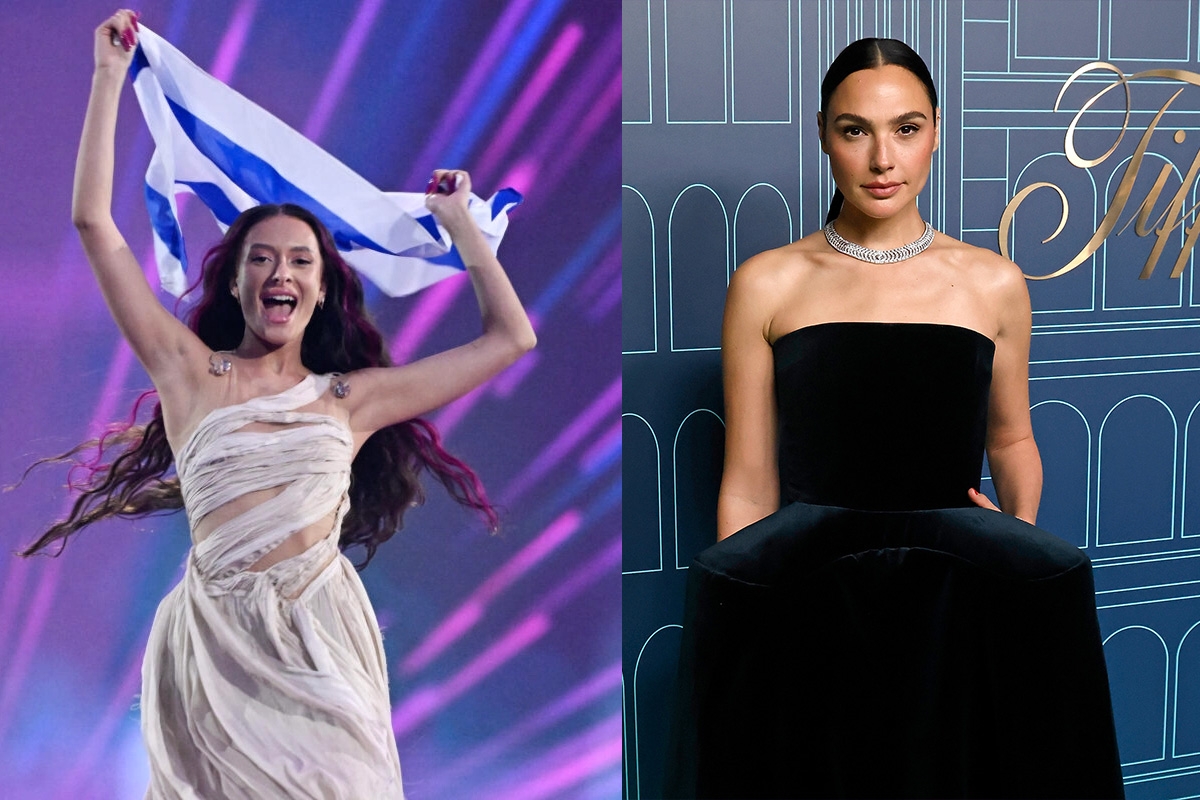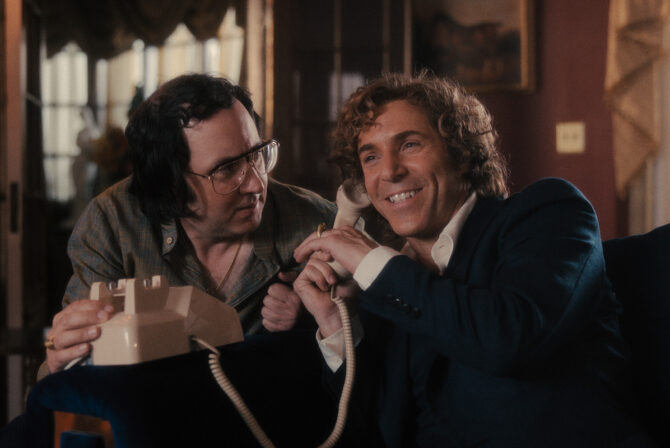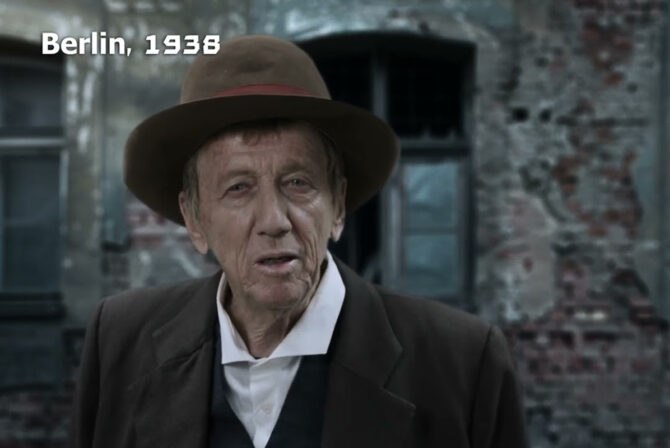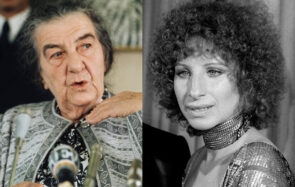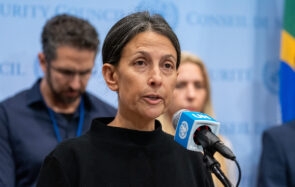The Eurovision song contest this year was truly a mess — so much so that when Swiss winner Nemo (the first non-binary winner of the competition, mazel) literally smashed the glass trophy and injured themselves while accepting the award, it felt so incredibly apt (we wish them refuah shleimah, a speedy recovery).
Most of the drama, though not all of it, surrounded Israel’s participation in the competition due to the Israel-Hamas War.
The European Broadcast Union, the body that runs the competition, maintained that the competition is apolitical and that the Israeli delegation wasn’t there to represent their government. The Israeli song entry, “Hurricane,” had to be revised multiple times to make it less political (it was originally titled “October Rain”).
Eden Golan, 20, who was selected to be this year’s representative of Israel, refused to let her parents join her at the competition out of fear for their safety. She herself was urged to stay in her hotel for the majority of the event, and had a security detail of 100 vehicles bring her to the venue in Malmö, Sweden, which became the epicenter of crowded protests.
Yet her strife didn’t end once she entered the venue doors. The Israeli delegation was socially ostracized by many other delegations, according to songwriter Keren Peles, and despite event organizers urging the crowd not to boo or harass Eden, her singing was met with loud jeers — so jolting at first that Golan actually practiced with the Israeli delegation booing in her face in order to get inured to it.
During her last performance, many chanted “Europapa” as she sang, the title of the Dutch song entry, blaming her for the unprecedented removal of Dutch contestant Joost Klein, who was thrown out of the competition after an altercation with a Swedish camera person, which Twitter found ways to blame the Israeli delegation for.
But amid the boos, some high-profile names tried to cheer Eden on, including Jewish American music producer Scooter Braun and Israeli “Wonder Woman” actress Gal Gadot, who FaceTimed with Golan before the competition’s final from her home in Los Angeles. The call was recorded in a video that has been shared on social media.
“Love, love, love,” is what Gadot urged Golan do in the call, to which the young singer replied, “That’s exactly what we are doing here.” Peles, in Instagram stories and videos, said she constantly told Golan to match the hate with softness. “The more they boo, the softer you get,” she recalled telling her. And that is what Golan did, staying strong, soft, her pitch-perfect voice never wavering through every performance.
“Go on stage just like yesterday,” Gadot told her. “When you’re powerful and don’t lose yourself, you are amazing. That’s our victory. You’ve already won,” she said.
“Thank you, I so appreciate that and you,” Golan responded, audibly emotional. “You’re really moving me, thank you so much.”
Gadot called Golan a sweetheart and said her message came with “great love.” She also spoke of her own experiences with this kind of negative reaction. “I’ve stood in things like this, with so many haters, and many of my movies were banned in countries that didn’t want them because of me,” she told the singer. “It doesn’t change anything, it doesn’t matter — haters have everything to lose, we have the whole world to gain.”
Israel has been participating in the Eurovision since 1973. It has won four times, including boasting the first transgender winner — Dana International — in 1998.
Many artists have signed petitions asking the EBU to disqualify the country from the competition. There is some precedent here, as Russia, which used to be part of the contest, left the EBU following the war in Ukraine. But the Eurovision, while always political in some ways, bills itself as an apolitical contest about the power of music to transcend all (“United by the Music” was the hollow slogan of this year’s competition). And the EBU has said that unlike Russia’s public broadcast bodies, KAN, the Israeli public broadcast service, meets the requirements to be part of the show, and that the Israeli delegation doesn’t represent its government.
But many of the artists on stage didn’t agree. The previous year’s winner, Loreen from Sweden, reportedly said she would refuse to give the trophy to Golan if she won. Ireland’s Bambie Thug told the press they cried when they found out Israel had made it through the semifinals (Golan got the most votes of all other semifinal contestants). They also tried to get the country disqualified from the contest by alleging that KAN’s commentary on the show was in breach of EBU guidelines, though they seemed just as sassy and opinionated as those in other countries.
Despite all this, Golan finished in fifth place, even after she got very few votes from the countries’ juries (the vote is split between professional juries and the popular vote). While her voice and performance were incredible, it’s hard to say that politics had nothing to do with the lack of votes from the juries — or the support of the crowds abroad.
As the Israeli delegation returned home, they plunged into the rituals of Israel’s Memorial Day, which started on the eve of their return, and in which most Israelis practice a kind of solemn radio silence on social media. Singer Keren Peles went almost straight from the airport to a ceremony in Ramat Gan, where she sang, among others, Arik Einstein’s “Song After War,” which envisions soldiers returning home and peace coming.
“I dedicate my participation in the [Eurovision Song Contest] to the voices we can’t hear, the hostages — we are desperately waiting for you all to return home,” Golan wrote in a post summing up the experience.
